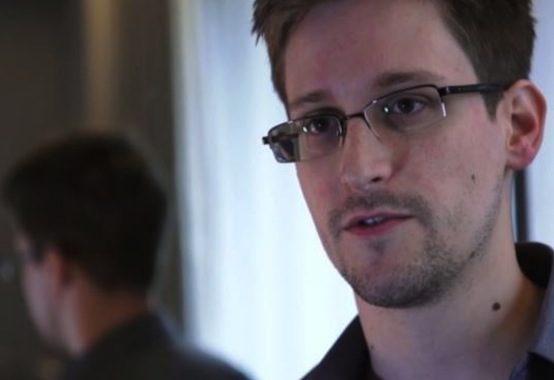We Finally Start to See What Drove Snowden

As the New York Times and Washington Post have recently reported, and Leah Libresco has ably described, the United States’s position as a fully empowered foreign panopticon is finally coming into view. The MYSTIC program apparently has allowed the NSA to record every single phone call taking place within some unidentified foreign country, maintaining the records for 30 days to allow analysts to quickly build a history and profile of newly identified targets. Moreover, far from being limited to this one anonymous country, the Post reports that resources have been marshaled to be able to deploy a similar system to an additional five or six countries.
It should be noted that the Washington Post‘s Barton Gelman included that this tool seems to yield significant results far beyond most of the routine surveillance overreach reported:
Highly classified briefings cite examples in which the tool offered high-stakes intelligence that would not have existed under traditional surveillance programs in which subjects are identified for targeting in advance. In contrast with most of the government’s public claims about the value of controversial programs, the briefings supply names, dates, locations and fragments of intercepted calls in convincing detail.
When Edward Snowden revealed himself as the source of significant NSA revelations last June, he described himself has being motivated by a desire to bring the U.S. government’s global surveillance operations to light, telling Glenn Greenwald, then of the Guardian,
I’m willing to sacrifice all of that because I can’t in good conscience allow the US government to destroy privacy, internet freedom and basic liberties for people around the world with this massive surveillance machine they’re secretly building.
In a subsequent moderated Q&A with Guardian readers, Snowden said
More fundamentally, the “US Persons” protection in general is a distraction from the power and danger of this system. Suspicionless surveillance does not become okay simply because it’s only victimizing 95% of the world instead of 100%. Our founders did not write that “We hold these Truths to be self-evident, that all US Persons are created equal.”
Most of the discussion surrounding Snowden’s status as a legitimate whistleblower has concerned his disclosures of various apparently illegal or unconstitutional activities on the part of the NSA in its domestic data collection. What the above quotes make clear, though, is that particular violations of U.S. statues or the fourth amendment are almost incidental to Snowden’s most pressing concerns, which is the power of countries (the U.S. especially) to monitor incredible scales of communication by persons anywhere in the world.
Many of the more controversial disclosures from the Snowden documents have revealed this international surveillance activity, such as tapping German Chancellor Angela Merkel’s phone, that is neither illegal nor, in some cases, outside the usual bounds of signals intelligence. After all, the days of “gentlemen don’t read each other’s mail” have long gone by.
With the latest, carefully anonymized, revelations, however, Snowden’s strongest motivations come into clearer focus, and should be addressed seriously. When one entity, such as a country, has the power to record and document every telephone call taking place within a given society, what effect, if any, does that have on the society targeted? Surveillance is not tangible. Especially in the digital age, it cannot be seen, heard, tasted, smelled, or touched. Bits and bytes pass through routers, waves pass through the air, and sometimes they are monitored by a third party.
How does our understanding of privacy extend from laws against peeping toms to total information monitoring surveillance states? What does it mean to set up a telephone panopticon over another country? The United States does not have legal jurisdiction in that country, after all; it cannot itself prosecute or imprison any thought criminals. But a sense of violation cannot be escaped.
What responsibilities do countries have to foreign nationals, overseas? The Constitution offers little guidance here. All the more reason, then, to ask the questions carefully, and loudly.
Comments